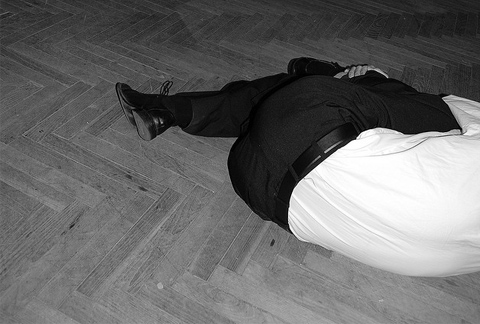Intoxicants Reduce the Joy of Parenthood
Substance Abuse Has Many Different Ways of Affecting Motherhood and Fatherhood.

Parenting and Substance Abuse (Oxford University Press 2013), an extensive compilation of international researchers, concentrates on the different aspects of how substance abuse impacts motherhood and fatherhood and on the newly developed treatment models. The book is the first publication ever published from this perspective.
Many already recognised risks associated with substance abuse affect the quality of parenthood and experiencing it. These include, among others, psychological problems, early experiences in socialising, a weak support system and financial difficulties.
Marjukka Pajulo, Docent of Early Childhood Psychiatry in the University of Turku and one of the editors and writers of the book, emphasises the importance of understanding the neurobiological effects.
– Research indicates that intoxicants and the satisfaction received from parenthood compete for the same nerve paths in the brains of the parents. This, in part, is a cause for the duller experiences of the joy and satisfaction received from parenthood in substance abuser parents, tells Pajulo.
Less Attachment Hormone Secreted in Substance Abusers
The neurobiological effects of substance abuse have been researched by mapping brain activity and by measuring the transmitter and hormonal levels of the brain. Substance abuse and parenthood are connected to the same nerve paths in the brain that are associated with feeling pleasure and managing stress.
Oxytocin or the so called attachment hormone has been proven to be weaker in substance abuser mothers. This, in part, probably weakens and hinders the mother’s attachment to the baby during the pregnancy and after the birth.
Intoxicants also influence the stress management system. Intoxicant abuse and addiction decrease stress control and management, as well as concentration, and increase impulsivity and unpredictable behaviour.
Stress control is tried by, for example, parenting a baby that cries often or a toddler in their terrible twos. A child exposed to intoxicants during pregnancy is also often more difficult to comfort and tend: this kind of a child needs special care and sensitivity from their parents.
– The whole combination often leads to negativity in parent-child interaction, which increases the parent’s stress levels, which predisposes to more substance abuse, to child neglect and even to child abuse, Pajulo tells and continues:
– It is important to recognise that this is not a case of wilful indifference or of reluctance to be a good parent, but a case, which has also a neurobiological explanation and which can and should be treated early on.
A New Approach to Treating a Substance Abuser Parent
Before, the approach was that the parent’s substance abuse had to be treated before concentrating on supporting the parenthood of the substance abuser. New research results support the idea that concentrating forcefully on parenthood and social interaction helps the parent to avoid intoxicants.
The pressures of parenthood can also increase the risk of abusing intoxicants. A small child brings along with it new worries, responsibilities and stress – even guilt. The situation is especially difficult if the child has been exposed to intoxicants because of the parent; the child is weepy, sensitive to touch, difficult to interact with and difficult to comfort.
– When planning and implementing the treatment, understanding the impact of stress is important. The parent’s positive interactions with the baby or child should be increased and new stress management techniques should be taught to the parent.
Pushing Away Intoxicants during Pregnancy
Motivated by the knowledge of becoming a parent, mothers often strive towards being clean and having a new beginning, especially during pregnancy. The situation could be similar for fathers, but it has not been researched as much.
The pregnancy period is an important phase of intervention and support.
– First, the embryo must be protected from being exposed to intoxicants. Second, the mother’s interest in the baby and positive attitude and attachment to the baby can be supported, and future difficult interaction problems prevented. The attachment nerve paths are hijacked back to the baby, to whom they originally should belong, says Pajulo.
Marjukka Pajulo, in association with Docent Mirjam Kalland, has written a chapter in the book Parenting and Substance Abuse dealing with the intoxicant addiction treatment model developed in Finland, in organisational sector (Federation of Mother and Child Shelters and Homes). It is a treatment model designed for the pregnancy period and the first few months after the birth. The treatment aims to strengthen the so-called mentalisation ability of the mother, i.e. the mother’s early interest in the baby’s experiences, development and persona. The research results concerning the quality of parenthood, as well as the prevention of relapses into substance abuse and of the need to take the children into custody, have been encouraging.
Further Information:
>> Parenting and Substance Abuse. Developmental Approaches to Intervention. Edited by Nancy E. Suchman, Marjukka Pajulo and Linda C. Mayes. Oxford University Press, 2013.